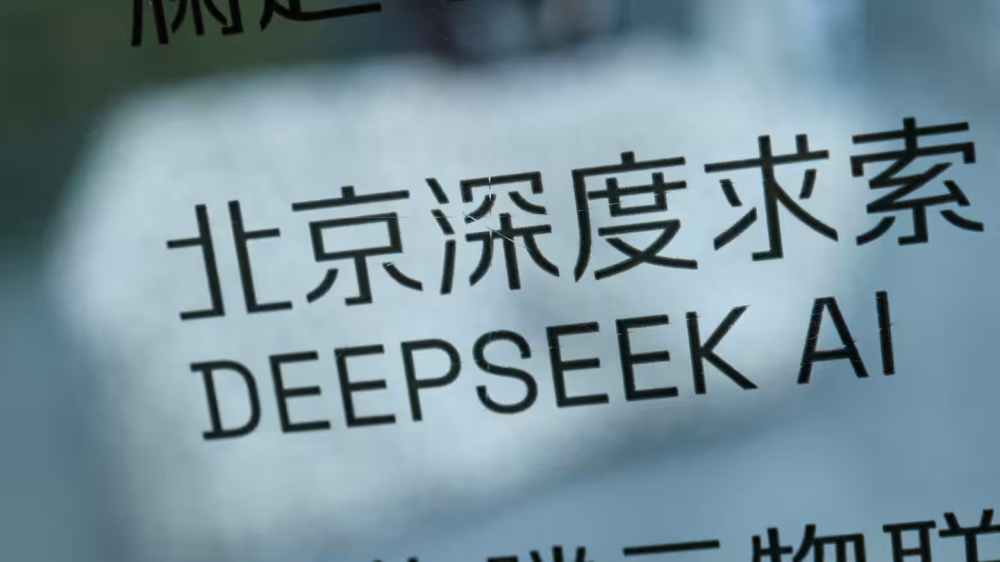Henny Sender is the founder and managing partner of Apsara Advisory, a strategic consultancy for financial services companies. She was previously a managing director at the investment company BlackRock.
The DeepSeek moment has been likened to the Sputnik moment of the 1950s, when technologists in the U.S. -- the world's most powerful nation -- were jolted by an unexpected challenge to their dominance from the Soviet Union, a rival whose accomplishments they had long dismissed.
Similarly a few months ago, when the world learned that there was a quant firm with offices in Hangzhou and Beijing that had come up with an AI model offering comparable performance at a fraction of the cost of its American rivals, the news was greeted with comparable astonishment.
Yet the emergence of DeepSeek may ultimately prove even more catalytic, given its impact on market psychology and potential effect on economic activity. It is one thing to come up with awesome apps such as WeChat. It speaks to a whole different level of ambition on the part of entrepreneurs to come up with an AI model built on less capital intensive and less powerful hardware -- yet with smarter software than predecessors.
Seemingly overnight, DeepSeek has become China's national champion, along with companies like battery maker CATL and EV producer BYD.
"The emergence of DeepSeek has been a pivotal moment for AI in China," noted Joyce Chang, head of research for JPMorgan in New York. "The China tech space (AI, industrial robots, automation) has entered a breakout stage after decades of development, driven by engineering talents and government support that fostered an ecosystem treating tech as infrastructure."
The integration between homegrown AI and the real economy is expected to be transformative. By integrating AI with manufacturing, DeepSeek potentially can "accelerate industrial transformation and smart manufacturing, autonomous cars, and the use of robots, compensating for declining productivity and robotics in the process," according to Morgan Stanley.
Indeed, widespread adoption of the AI that DeepSeek facilitates can go some way to compensating for the three troubling D's of the country; demographics, deleveraging and deflation.
To be sure, it isn't clear whether DeepSeek is a one-off or portends breakthroughs in other spheres where big databases and a more forgiving regulatory environment may be advantageous. If DeepSeek proved that deep pockets matter less than was generally assumed for AI, can that hold true in other spheres as well?
That, though, is a question for tomorrow. For now, the euphoria has made Chinese markets among the top five best performers year to date (MSCI was up 18.5% year to date as of July 10) and given a powerful boost to confidence.
The mood at the China Development Forum at the end of March was gloomy, in anticipation of Donald Trump's tariffs and stiffer sanctions. By contrast, that of Summer Davos in Tianjin in the last week in June was far more upbeat, in part thanks to a more convincing embrace of tech entrepreneurs on Beijing's part after years of tension with companies such as Alibaba and Didi.
At a time of rising geopolitical competition, moreover, "The United States' lead has narrowed," Morgan Stanley's tech analysts said. "DeepSeek has shifted the global narrative by challenging the perceived U.S. dominance of AI. In the past, Japan could boast superior proficiency in hardware. India could assert that its IT services and software lead the world. Only the Americans could assert unrivalled mastery of both skills. Now China can say the same."
The BYD Yangwang U9 electric supercar. DeepSeek comes at a time when China is attempting to narrow the gap with the U.S. on a host of technologies. © Reuters
In addition, DeepSeek comes at a time when China is attempting to narrow the gap with the U.S. on a host of other technologies and areas of research, including biotech, quantum computing and semiconductors, even as it narrows the gap in other fields, such as autonomous vehicles, battery technology and renewables.
China already has a competitive edge in technology that has both civilian and military applications, such as drones. And while the U.S. cuts back on government funding for climate initiatives, Beijing is attempting to come up with breakthroughs in nuclear fusion as part of its clean energy initiatives, thereby solving the issue of how to safely dispose of radioactive waste in nuclear power plants.
In retrospect, there should perhaps have been less surprise. As the Morgan Stanley analysts note, DeepSeek is part of a deep ecosystem on the mainland built on talent, cheap energy and extensive data. There are 535 universities in the country offering AI-related majors and the country produces more AI-related patents than any other nation. About 28% of all top-rated researchers in the field sit in two university centers, in Hefei and Zhengzhou.
That human capital matters far more than just money. There was considerable skepticism outside China that only private capital was behind Deepseek, though local investors in quant funds such as DeepSeek say they knew about the company's existence for at least two years.
The Magnificent Seven in the U.S. have had a magnificent market run, with few alternatives elsewhere to challenge them. That is now changing.





